Telling someone that you have been diagnosed with cancer is never easy, and this is even more true when it is your child that has cancer.
Deciding how to tell family members and friends, who to tell, and who should be taking the lead, is important, and while there are some universal recommendations, a lot depends on the child’s age and personality.
The first person, after the parents, who needs to know about the diagnosis, is the child. It is important that you ensure that your child has an age-appropriate understanding of what’s happening to him or her.
As a parent, your first instinct will be to protect your child, but children are very sensitive and intuitive, and will most probably realise that there is something radically wrong. They may already be going for a series of medical tests and being examined by various doctors; they will pick up that you are stressed, and may worry more if they do not know what is wrong.
Keeping the truth from your child may cause them to feel guilty for making you stressed out, which is not good for them. Some well-meaning family members may say something to them or one of their oncology team or staff at the clinic or hospital may inadvertently let something slip. If your child finds out about their cancer from another source they will lose trust in you as a parent because you were not honest with them.
Read more on how and what to tell your child at what age in THIS ARTICLE
From there it is generally useful to start with more practical communication, with people like your child’s school, your and your spouse’s work, your insurance/medical aid companies, followed by family and close friends, and then whichever of the larger community you feel need to know.
Once you are ready to disclose a child’s cancer diagnosis to others, it is important to make sure what you say is true, and that you are sharing information in an age-appropriate way and taking into consideration your child’s preferences for what is shared and how.
While disclosure is basically more parent-driven for younger children, in this age of social media, many teenagers may take the lead and share their diagnosis with friends via text messaging or social media, and this can be a good thing because they will generally receive instant support from their peers.
In this podcast (audio only), MD Anderson Child Life Specialist Kelly Wagner shares information, advice and different approaches for how to talk to children of all ages about their cancers.
Parents of younger children often start with their Child with Cancer’s friends’ parents, who often need time to adjust to the news before speaking with their own young children. You can then do some education with friends’ parents, organise play dates, and make social connections happen if they aren’t happening on their own.
Not everyone is the same though, and while some older children or teens may use social media and some parents may have these discussions face-to-face, this will not necessarily be the right way for everyone to share or for everyone to hear.
Some people find it easier to tell only a few people in person and text or phone others while leaving it up to the social grapevine to do the rest… you need to do what feels right for you and your family!
It’s important to remember that, while sharing the information the first time is unique, this is not a one-time conversation. It is important that you and your family assess over time whether you need to share more, or different, information, and whether your method of communicating is working or if you should try something different next time.
Just as the information you share will change as treatment goes on, the support you receive from others may change as well, which can be challenging.
There are waves in time where communication shifts, when people move on to discussing other things, and it may feel as though your child is being ignored. It is important that both you and your child to prepare for these waves in support, and for any questions that may be asked, such as why your child doesn’t have hair.
These questions can be very disarming – parents don’t want their children to be hurt beyond what they’re already going through, and acquiring skills to manage these tough interactions can help avoid that and come in handy throughout life.
Remember, while you should share your child’s diagnosis, especially with family and close friends as you need their support, what is most important is that YOU and YOUR CHILD are comfortable with what is being discussed, so do not hesitate to tell people “I don’t feel like discussing this now!”
Source: Tips for Sharing Your Child’s Cancer Diagnosis with Others




Most Commented